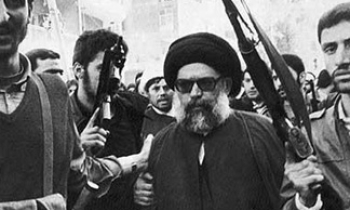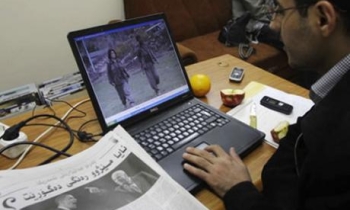Poland has freed the journalist who started a three-month jail term on Monday, becoming the only person in the European Union serving a criminal sentence for libel. The constitutional court finally decided to suspend implementation of his prison sentence for libel and set him free.

Andrzej Marek, editor of the regional weekly Wiesci Polickie (Political News), published an article in February 2001 headlined "Promotion of scheming" in which he exposed a corrupt police official in the city.
International, particularly European, pressure had been mounting on the Polish government to release Marek.
"This imprisonment is shameful for a country like Poland, which has just joined the European Union and which is the sole member state to impose prison sentences on journalists for offences of opinion," Reporters sans Frontières (RSF) had said on Marek's prison sentence.
"Andrzej Marek should be immediately released. We once again call on President Lech Kaczynski to pardon this journalist who has only done his duty in informing the public," RSF said in an earlier statement. RSF had made a previous request to the new Polish head of state on December 29, 2005 to grant Marek the pardon he should have had under the previous presidency of Alexander Kwasniewski.
The international Press Institute (IPI) had written to the Polish president, "Prison terms are never justified for dissemination of news and information or for expressions of opinion, no matter how unsettling or offensive they may seem to those involved. This sentencing sets a dangerous precedent that will have a chilling effect on press freedom in Poland by encouraging self-censorship among journalists.
"The view that the criminalisation of defamation is illegitimate is shared by the world's leading courts, including the European Court of Human Rights and the Inter-American Court of Human Rights. The clear trend of their opinions is that defamation should be treated under civil law, not as a criminal offence subject to state punishments."
In a letter to Poland President Lech Kaczynski, the Organization for Security and Cooperation in Europe (OSCE) Representative on Freedom of the Media said that the imprisonment could have serious consequences for freedom of the media in Poland. "You now have the possibility to pardon Mr. Marek. By doing so, your High Office could help ensure that no legal precedent for the future could be constituted in Poland by this punishment," wrote Miklos Haraszti.
The Committee to Protect Journalists (CPJ) too had expressed alarm at the jailing of Marek. "We are deeply troubled by the Polish courts' decision to send a journalist to jail for what he has written, and we appeal to President Kaczynski to immediately pardon Andrzej Marek," CPJ Executive Director Ann Cooper said. "This case demonstrates the urgent need for Polish authorities to eliminate laws that criminalise libel. Democracies worldwide have shown that civil law provides a fully appropriate remedy."
Marek is one of the very few Polish journalists to have been tried on criminal defamation since the collapse of communism in 1989, CPJ research shows. Few journalists have been jailed for their work in all of the European Union, according to that research.
The criminal libel charge stems from two February 2001 articles alleging that Piotr Misilo, speaker of the promotion and information unit of the Police City Council, had obtained his post through blackmail and used the position to promote his private advertising business.
Marek was convicted in November 2003, and the Szczecin District Court upheld the ruling in February 2004. The court said it would suspend Marek's sentence if he apologized to Misilo in his newspaper, but Marek refused.
The court ordered Marek to start serving his sentence in March 2004 at the Szczecin Municipal Prison. A day before he was to be jailed, a group of prominent Polish journalists protested outside the Polish Parliament in the capital, Warsaw. The journalists rented an empty tiger cage from the Warsaw Zoo and took turns locking themselves inside for 30 minutes at a time to dramatize the verdict, according to local and international press reports.
Following the protest, the Szczecin District Court postponed Marek's sentence for six months, while Marek continued to appeal the verdict. On June 22, 2004, the Polish Supreme Court upheld the sentence, despite protests from Polish and international human-rights groups and a Parliament-appointed ombudsman. The Supreme Court ruled that the accusations Marek made against Misilo in his articles were unfounded and untrue, international reports said.
The sentence was stayed again as Marek sought a pardon from then-President Aleksander Kwasniewski, but the request was denied last month.
One of Poland's best known newspaper editors was fined last year for ridiculing then-Pope John Paul II. A court in Warsaw ordered Jerzy Urban to pay the equivalent of $6,500 for insulting a head of state by writing a satirical article on the eve of the pontiff's 2002 visit to Poland.









